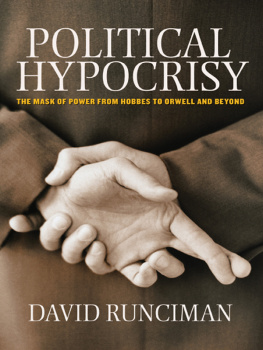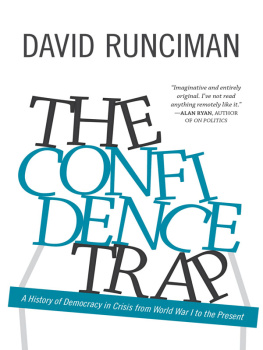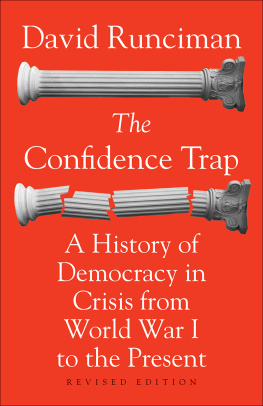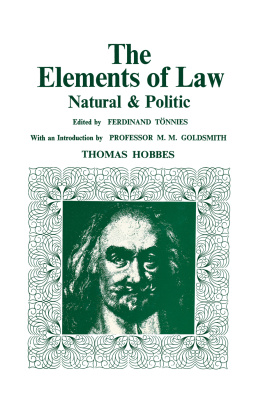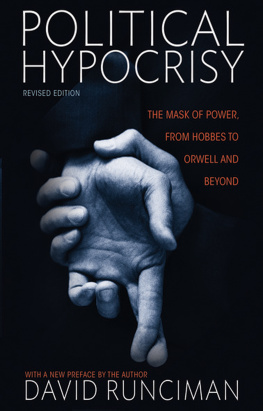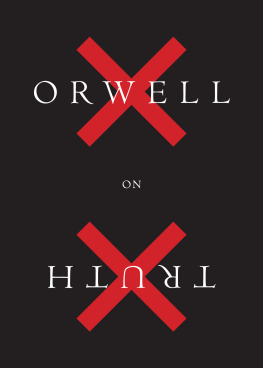Copyright 2008 by Princeton University Press Published by Princeton University Press, 41 William Street, Princeton, New Jersey 08540
In the United Kingdom: Princeton University Press, 6 Oxford Street, Woodstock, Oxfordshire OX20 1TW
All Rights Reserved
Library of Congress Cataloging-in-Publication Data
Runciman, David.
Political hypocrisy : the mask of power, from Hobbes to
Orwell and beyond / David Runciman.
p.cm.
Includes bibliographical references and index.
ISBN: 978-0-691-12931-0 (hardcover : alk. paper) 1. Political ethics. 2. HypocrisyPolitical aspects. 3. Political Sciencephilosophy.
I. Title.
JA79.R7819 2008
320.101dc22 2007046793
British Library Cataloging-in-Publication Data is available
This book has been composed in Palatino
press.princeton.edu
Printed in the United States of America
1 3 5 7 9 10 8 6 4 2

The Mask Hypocrisies flung down, From the great Statesman to the Clown;
And some, in borrowd Looks well known Appeard like Strangers in their own.
Mandeville, The Grumbling Hive, 1705



This book is based on the Carlyle lectures that I delivered at Oxford University during February-March 2007. Each of the chapters is a substantially revised and expanded version of the original lectures, but I have tried to retain the style of the lectures in the written version, and have kept references to the scholarly literature to a minimum. Each chapter deals with a different aspect of the problem of hypocrisy in modern politics: respectively power, virtue, freedom, language, party politics, empire and contemporary democracy. The subjects of these chapters are connected by a number of inter-related themes, but I hope that they can also be read as separate essays in their own right. It is one of the central claims of this book that there is a tradition of thinking about the problem of hypocrisy in politics that runs from Hobbes to Orwell, and connects to the problems of the present day. I do not claim that this is an entirely unified or coherent tradition, nor that these authors were necessarily worrying about the same things as each other, never mind the same things that we are worried about now. But I do believe that there is enough of a connection between them to suggest that there is an alternative way of thinking about the problem of political hypocrisy to the counsels of cynicism or despair that we so often hear. My hope is that this connection emerges over the course of the book as a whole.
The chapter on Jefferson and American independence was not part of the original lecture series. The focus of the final chapter on the lessons of this story for contemporary politics has triedto take account of the shifting political scene both in Britain and the United States (it has only been a few months since I delivered the lecture on which it is based, but a few months is a long time in politics). Political hypocrisy is a difficult subject to pin down, because there is so much of it about, and because hypocrites, being hypocrites, cant be relied on. That is why a historical perspective is so important.

I am very grateful to the Carlyle Lectures committee for the invitation to give the course of lectures on which this book is based, and I would particularly like to thank George Garnett for all his encouragement and support. While in Oxford, Nuffield College provided me with a quiet and comfortable room in which to work. Kinch Hoekstra, Noel Malcolm and Patricia Williams were very generous with their time and hospitality. Between them they made what might have been a daunting experience an extremely enjoyable one.
At Princeton University Press, Ian Malcolm has been a superb and tireless editor and I am very grateful for all his hard work, as I am for the support of Caroline Priday and the rest of the Princeton UK office; Jodi Beder offered much useful advice during the copyediting stage. I would also like to express my thanks to two anonymous readers for their very helpful comments, to Richard Tuck for his pointers about Hobbes and sincerity, and to Miranda Landgraf, for kindly agreeing to read and comment on the bulk of the manuscript. My colleagues in the Politics Department at Cambridge and at Trinity Hall generously covered for me during the terms leave I took to write and deliver the lectures. I would particularly like to thank Helen Thompson for her friendship and conversation over the years, about hypocrisy and much else besides.
The initial reading for and thinking about the themes of this book was done during a two-month fellowship at the Research School of Social Sciences at the Australian National University in Canberra. Bob Goodin was an exceptionally generous and tolerant host, and I very much appreciate the freedom that visit gave me to get started on this project. Finally, I would like to say thank you to Bee, Tom and Natasha for coming with me to Canberra, and for making that trip, as everything else, such a joy.
POLITICAL HYPOCRISY

This is a book about hypocritical politicians, and about some of the ways we might learn to view them. There is a lot of hypocrisy at work in contemporary politicsno doubt we all have our favourite examples, from the moralising adulterers to the mudslinging do-gooders. But although it is fairly easy to point the finger at all this hypocrisy, it is much harder to know what, if anything, to do about it. The problem is that hypocrisy, though inherently unattractive, is also more or less inevitable in most political settings, and in liberal democratic societies it is practically ubiquitous. No one likes it, but everyone is at it, which means that it is difficult to criticise hypocrisy without falling into the trap of exemplifying the very thing one is criticising. This is an intractable problem, but for that reason, it is nothing new, and in this book I explore what a range of past political thinkers have had to say about the difficulty of trying to rescue politics from the most destructive forms of hypocrisy without simply making the problem worse. The thinkers that I discussfrom Thomas Hobbes to George Orwellare not the usual ones who are looked to for guidance on matters of hypocrisy and duplicity. This is because as champions of a straight-talking approach to politics they can appear either naively or wilfully cut off from the fact that hypocrisy is something we have to learn to live with. But in fact, I believe these are precisely the thinkers who can help us to understand the role that hypocrisy does and ought to play in political life, because they saw the problem of hypocrisy in all its complexity, and were torn in their responses to it. In this introduction, I will explain why I think these particular authors can serve as a guide to our own concerns about political double standards, and why they are better suited to that task than the writersfrom Machiavelli to Nietzschewho are more often assumed to be telling us the truth about the limits of truthfulness in politics.
Next page
